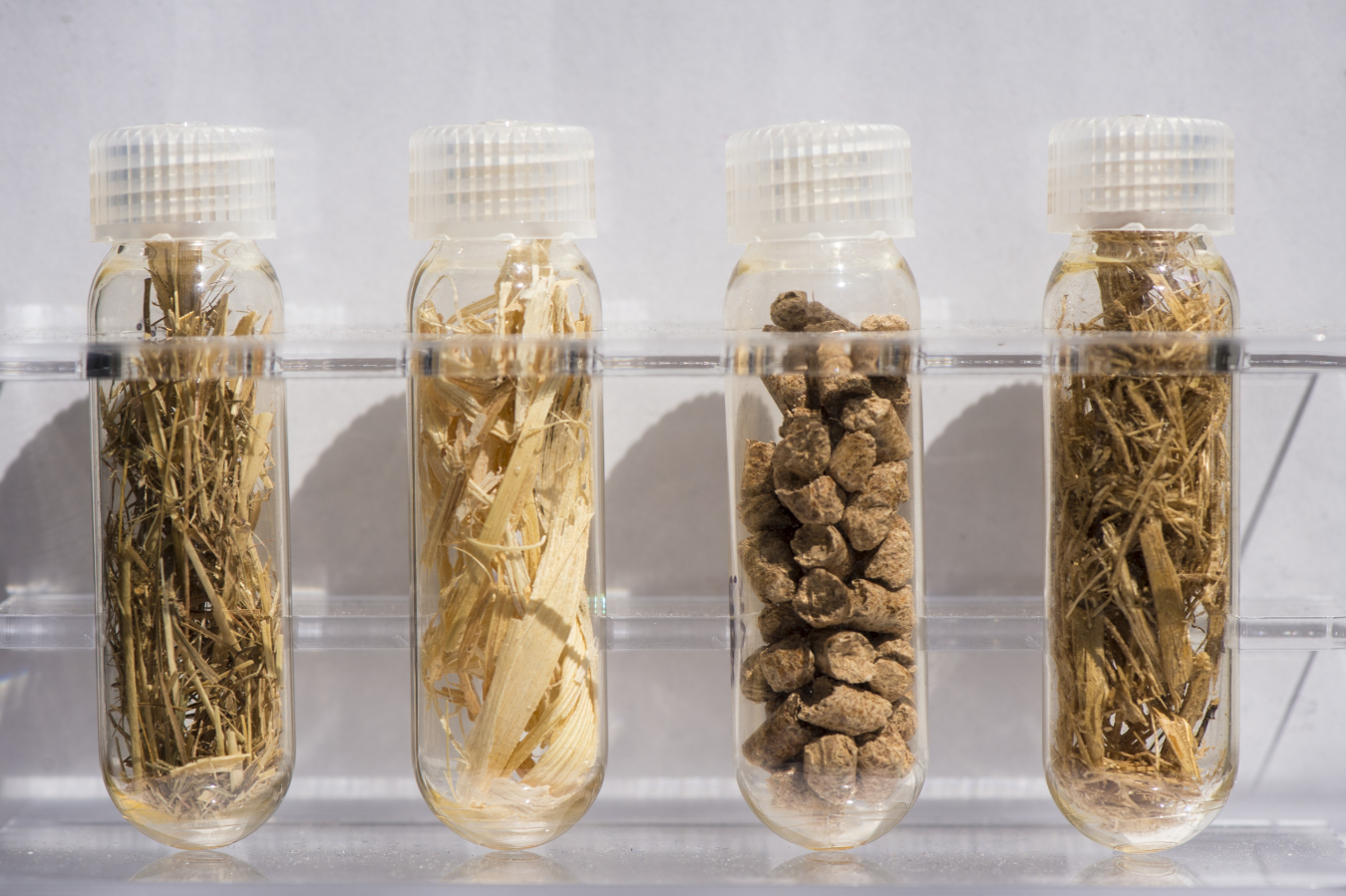Resource logistics consist of the harvest, collection, preprocessing, and transportation of biomass and wastes to the biorefinery. Both land-based feedstock logistics and algal logistics activities include maintaining quality and reducing mass loss during storage and developing advanced preprocessing strategies and technologies.
Technologies such as moisture reduction/dewatering and ash mitigation can reduce the overall logistics cost, reduce the energy usage, and upgrade a wide variety of renewable carbon sources into on-specification, high-quality, conversion-ready feedstock.

Energycane harvest. Photo courtesy of Texas A&M University.

Preprocessed biomass samples. Photo courtesy of NREL.

